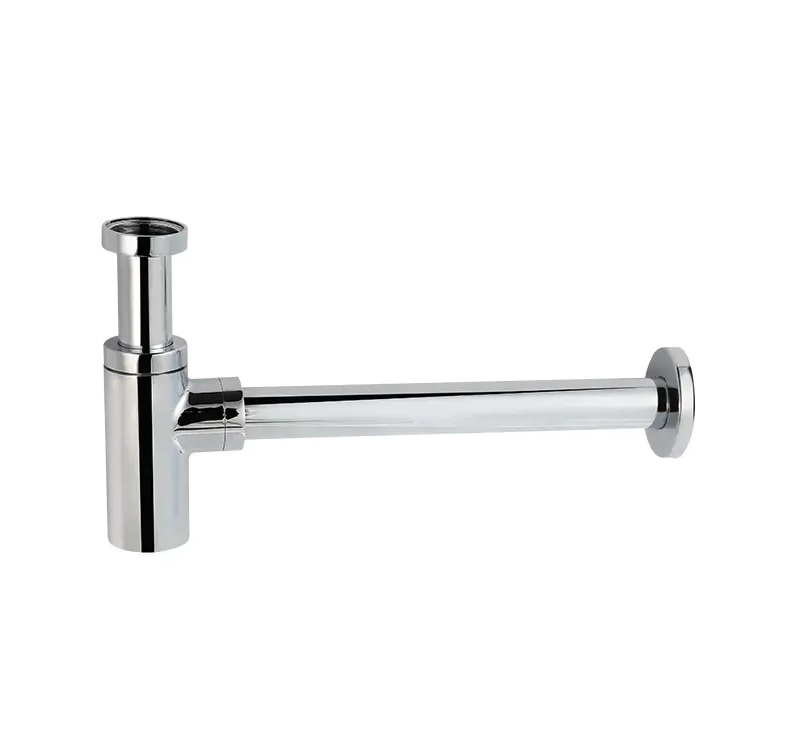In the intricate world of plumbing fixtures, the Brass Basin Siphon Trap is a standout component designed to facilitate the smooth flow of wastewater while preventing the backflow of sewer gases and odors. This article aims to present an objective analysis of the advantages and disadvantages of using Brass Basin Siphon Traps in various plumbing scenarios.
One of the most significant advantages of Brass Basin Siphon Traps is their effectiveness in maintaining water seals. The water seal created by these traps prevents sewer gases from entering living spaces, thus ensuring a healthier and more pleasant environment. This feature is particularly important in buildings where the sewer system is extensive, and the risk of gas backflow is high.
The durability of Brass Basin Siphon Traps is another laudable attribute. Made from brass, these traps are resistant to corrosion and can withstand the test of time without significant wear and tear. This longevity not only reduces maintenance costs but also contributes to a more sustainable plumbing infrastructure, as fewer replacements are needed over time.
Efficiency in water usage is yet another advantage that Brass Basin Siphon Traps offer. By allowing for a smooth and uninterrupted flow of wastewater, these traps help conserve water that might otherwise be wasted through leaks or inefficient drainage systems. This efficiency is crucial in areas where water conservation is a priority.
However, despite these benefits, Brass Basin Siphon Traps are not without their drawbacks. One common disadvantage is the cost associated with their installation and maintenance. Brass is a relatively expensive material, which can make the initial outlay for such traps more significant than for traps made from other materials. Additionally, while brass is durable, it may still require occasional cleaning to prevent mineral buildup, which can affect the trap's performance over time.
Another disadvantage is the complexity of the installation process. The proper installation of Brass Basin Siphon Traps requires a skilled plumber to ensure that the trap is positioned correctly and that all connections are secure. This can lead to higher labor costs and potential delays in plumbing projects if the right expertise is not readily available.
The susceptibility to blockages is another concern with Brass Basin Siphon Traps. While they are designed to handle the flow of wastewater effectively, they can become clogged with debris, hair, or other solids, which can disrupt the flow and potentially lead to sewage backups. Regular maintenance and inspections are necessary to mitigate this risk.
Lastly, the environmental impact of Brass Basin Siphon Traps should not be overlooked. The production and disposal of brass fixtures have an environmental footprint that includes energy consumption and waste generation. This is an important consideration for those who prioritize eco-friendly solutions in their plumbing systems.
In conclusion, Brass Basin Siphon Traps offer a range of benefits, including effective gas sealing, durability, and water efficiency, which make them a popular choice in many plumbing systems. However, they also come with certain drawbacks, such as higher costs, installation complexity, the risk of blockages, and environmental concerns. Understanding these pros and cons is essential for homeowners and plumbers alike to make informed decisions about the most suitable plumbing fixtures for their specific needs.
Material: Brass
Brand: Tengxing
Customize: Yes
Weight: 0.6kg
Surface Treatment: Polished, Chrome Plated
